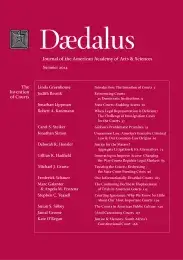Gideon’s Problematic Promises
The landmark case of “Gideon v. Wainwright” (1963) ensured the right of criminal defendants across the country to the effective assistance of counsel, but the overwhelming consensus is that the promise of “Gideon” has not been kept. Although there are significant differences in the delivery of indigent defense services across the country, there are four general reasons for the failure of “Gideon” that obtain across every jurisdiction and collectively cover much of the explanatory terrain: 1) its mandate is inadequately and precariously funded; 2) institutional impediments have impinged on the independence, training and oversight, and advocacy culture of indigent defense counsel; 3) legal remedies for ineffective assistance of counsel are often inadequate, inaccessible, or both; and 4) the ubiquitous practice of plea bargaining shields inadequate representation from view or remedy. Vindicating the right of poor people to effective representation in criminal cases remains a daunting but enormously important task.
What is at stake in a criminal trial? The special procedural protections that the Constitution provides in criminal cases protect a defendant’s reputation, liberty, and sometimes even life. In addition, a criminal conviction can carry serious collateral (that is, putatively non-punitive) consequences, such as deportation, disenfranchisement, and required registration and community noti½cation (as in the case of convicted sex offenders). Beyond these individual interests, considerable though they are, lie less tangible but no less important collective interests. In the United States, constitutional adjudication establishes minimum national standards regulating police investigative practices, the vast majority of which takes place in the litigation of individual criminal cases. Thus, criminal trials play a crucial role in establishing constitutional limits on the entire range of law enforcement investigative techniques, including police intrusions into private homes, street encounters, border searches, interrogations, identification procedures such as lineups, and the use of technology such as GPS tracking and DNA sampling.1
Because the U.S. incarceration rate has undergone a massive and unprecedented increase over the past . . .
Endnotes
- 1The last two terms of the Supreme Court have yielded constitutional decisions regarding the investigative use of GPS tracking and DNA sampling–see United States v. Jones, 132 S. Ct. 945 (2012), and Maryland v. King, 133 S. Ct. 1958 (2013)–but the provisional nature of the opinions in these cases demonstrates that the Court is clearly cognizant that these two tools represent the tip of the iceberg of technological innovation yet to come.
